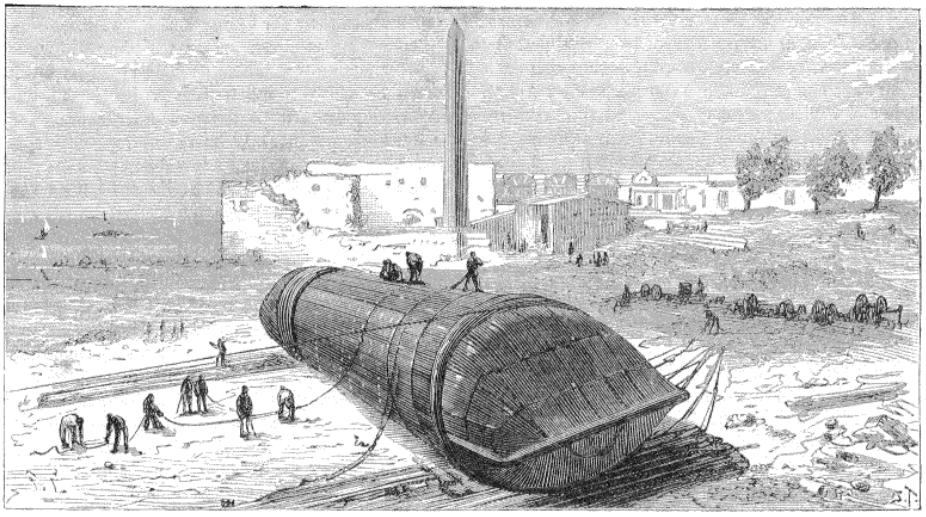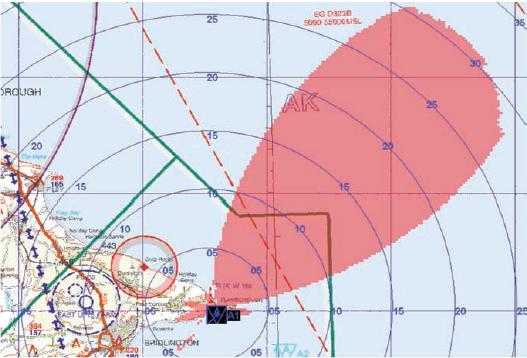“Woolfiller repairs holes and hides stains in woollen jumpers, cardigans, jackets and carpets, for example. How? Through embracing the specific character of wool. The fibres of wool contain miniscule scales which open up when they are pricked with a felt needle. The open scales bind with each other and will not be separated. Not even in the wash. Woolfiller can be used with a special machine or with the hand. It is simple, sustainable and satisfying. A new solution for an age old problem.” Thank you, Adriana.
How to Ship an Obelisk
In the 19th century Egyptian rulers gifted several large 1500BC obelisks to Paris, London and New York, all of which are still standing today. We already know how these things were erected, but how did they get there? The images above and below (from a 1878 article in the French magazine “La Nature”) show the vessel used for the transportation of the fragile 250 tonne heavy granite stone which is now in London.
A special vessel (the “Cleopatra”), was constructed around the obelisk, rolled into the sea, and then towed across the Mediterranean and the Atlantic to England. It sank on the way, but miraculously drifted to shore and was saved. The barge consisted of a steel cylinder enveloped in wood. The Americans, the French, and (much earlier) the Romans used different methods.
Hardcore Book Scanning
Needed: Chainsaw + scanner. Read the first comment before you try this at home. Via Mijns Insziens.
How to Build a Reciprocal Roof Frame (aka Mandala Roof)
“A reciprocal roof is a beautiful and simple self-supporting structure that can be composed of as few as three rafters, and up to any imaginable quantity (within reason, of course). Reciprocal roofs require no center support, they are quick to construct, and they can be built using round poles or dimensional lumber (perhaps with some creative notching). They are extremely strong, perfect for round buildings, and very appropriate for living roofs, as well.”
How to build a reciprocal roof frame. Practice with matches first.
Related: How to build an earthbag dome.
Via Judit Bellostes.
Geeks and Nuclear Power
Ran Prieur writes: “Why do geeks love nuclear power? More precisely, using Howard Gardner’s theory of multiple intelligences, why do people with high logical-mathematical intelligence like nuclear power so much more than people with high intelligence in other areas? Framed this way, it’s an easy question. In the world of logic and numbers and predictable machines, nuclear power is totally safe. Chernobyl doesn’t count because, for political reasons, the plant was not designed, regulated, or run correctly. Fukushima doesn’t count because, for economic reasons, the plant was not built to withstand an 8.9 earthquake and tsunami. Nuclear power would be perfect if only you stinky primates would obey our beautiful science!”








